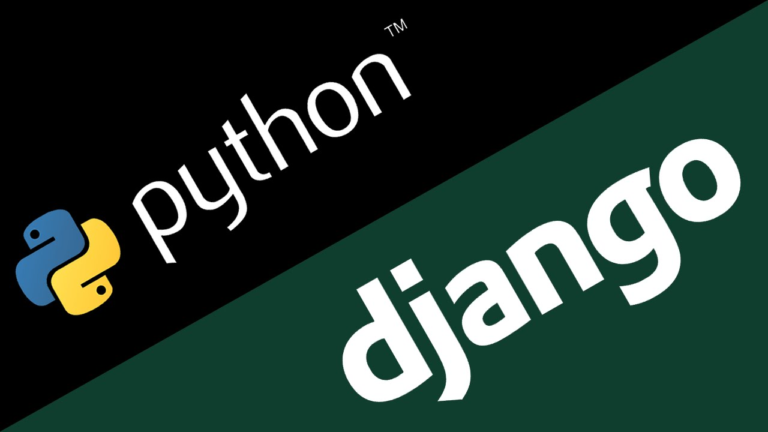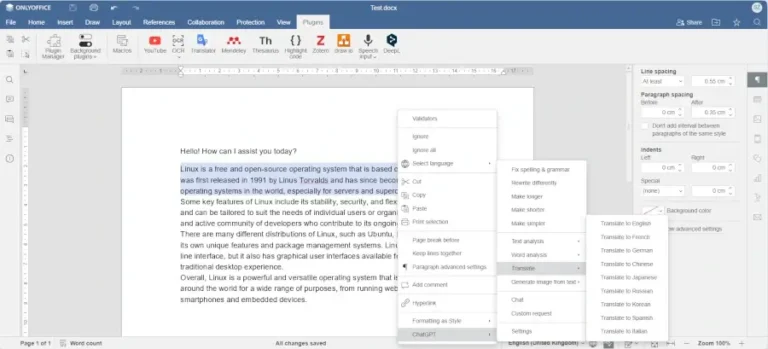Are you looking to enhance your Python programming skills and dive deeper into database management? Look no further than SQLAlchemy.
This powerful SQL toolkit and Object-Relational Mapping (ORM) library offers a comprehensive guide to understanding its basics, working with CRUD operations, exploring advanced features like relationships and database migration, and learning best practices for optimizing performance and ensuring security.
Let’s explore the world of SQLAlchemy together in this article.
Key Takeaways:
Contents
- 1 Key Takeaways:
- 2 Introduction to SQLAlchemy
- 3 SQLAlchemy Basics
- 4 Working with SQLAlchemy
- 5 Advanced Features of SQLAlchemy
- 6 Best Practices for SQLAlchemy
- 7 Resources and Further Learning
- 8 Frequently Asked Questions
- 8.1 What is SQLAlchemy and what does it do?
- 8.2 How does SQLAlchemy help in working with SQL databases?
- 8.3 Can SQLAlchemy be used with any SQL database?
- 8.4 What are some benefits of using SQLAlchemy?
- 8.5 Is SQLAlchemy suitable for both beginners and experienced developers?
- 8.6 Can SQLAlchemy be integrated with other Python libraries and frameworks?
Introduction to SQLAlchemy
SQLAlchemy is a powerful Python library for Object-Relational Mapping (ORM) that provides a flexible and efficient way to work with databases.
It simplifies the process of interacting with databases by abstracting the details of SQL queries, allowing developers to focus on their application’s logic rather than the intricacies of database operations. In modern web development, SQLAlchemy plays a crucial role in ensuring smooth communication between the application and the backend database. By providing an object-oriented approach to database management, SQLAlchemy enables developers to create robust database applications with ease.
Understanding SQLAlchemy
To understand SQLAlchemy fully, one must delve into its core components such as SQL expressions, joins, functions, and relationships.
SQL expressions serve as the foundation for queries in SQLAlchemy, allowing the creation of complex database queries. They represent the elements of SQL statements, enabling users to interact with the database programmatically.
Joins are crucial in SQLAlchemy as they combine data from multiple tables based on a related column between them, facilitating the retrieval of information from interconnected tables in a single query.
Functions in SQLAlchemy provide a wide array of built-in functions such as mathematical, string, and date functions. These functions enhance query capabilities and data manipulation within the database.
Relationships define how different tables are interconnected by establishing links between them, enabling efficient data retrieval and manipulation through SQLAlchemy ORM (Object-Relational Mapping).
Benefits of Using SQLAlchemy
The benefits of using SQLAlchemy extend to its support for various database dialects, easy installation process, comprehensive documentation, and rich set of features.
One of the key advantages of SQLAlchemy lies in its ability to seamlessly adapt to different database dialects, offering developers the flexibility to work across various platforms effortlessly.
The user-friendly installation procedures of SQLAlchemy make it accessible to developers of all levels, simplifying the setup process and allowing them to quickly get started with building robust databases.
The extensive documentation provided by SQLAlchemy serves as a valuable resource for developers, offering detailed explanations, tutorials, and examples to guide them through the intricacies of the library.
With a plethora of features at their disposal, developers can leverage SQLAlchemy to enhance the efficiency and effectiveness of their database operations, streamlining data management tasks with ease.
SQLAlchemy Basics
In SQLAlchemy Basics, mastering concepts like Data Mapper Pattern, Identity Map Pattern, Unit of Work Pattern, and Dirty Tracking is essential for effective database interactions.
These foundational concepts in SQLAlchemy play a crucial role in the Object Relational Mapping (ORM) framework. The Data Mapper Pattern ensures the separation of concerns by mapping the domain model to a relational database without the objects being aware of each other. The Identity Map Pattern helps in maintaining a single instance of each entity, preventing unnecessary queries and enhancing performance.
The Unit of Work Pattern manages all transactions as a single unit, ensuring consistency while dealing with multiple changes within a transaction. Lastly, Dirty Tracking automatically tracks changes made to objects, enabling efficient updates to the database without the need for manual tracking.
Object-Relational Mapping (ORM) Overview
An overview of Object-Relational Mapping (ORM) in SQLAlchemy includes essential operations like flushing, committing changes, handling events, incorporating hooks, adhering to code of conduct, and licensing considerations.
Flushing data changes in SQLAlchemy is crucial for synchronizing changes made in the Python code with the underlying database. This operation ensures that the changes are accurately reflected in the database without unnecessary delays or discrepancies.
Committing transactions is another vital aspect that finalizes changes made within a transaction, making them permanent in the database. This step helps maintain data integrity and consistency by ensuring that all changes are successfully applied and persisted.
Working with events and hooks allows developers to customize the behavior of SQLAlchemy based on specific triggers or conditions. This flexibility enhances the extensibility of SQLAlchemy, enabling developers to tailor the ORM framework to meet their application’s unique requirements.
Setting up the SQLAlchemy Environment
Configuring the SQLAlchemy environment involves steps like setting up the development environment, following a structured tutorial, grasping ORM basics, mastering ORM state management, and understanding ORM patterns.
Setting up the development environment for SQLAlchemy begins with installing the necessary dependencies like Python and the SQLAlchemy library. Once the setup is complete, one can proceed to follow a well-crafted tutorial to gain a solid understanding of SQLAlchemy’s core concepts and functionalities.
It is crucial to focus on grasping the ORM basics to effectively interact with databases using SQLAlchemy. Mastering ORM state management plays a vital role in ensuring efficient data handling and manipulation. Understanding common ORM patterns further enhances the development process and enables the creation of robust database-backed applications.
Working with SQLAlchemy
Working with SQLAlchemy involves performing CRUD operations, querying data, updating existing records, and deleting data entries effectively.
In terms of CRUD operations, SQLAlchemy simplifies the process by offering intuitive methods such as add(), commit(), delete(), and update(). For instance, to insert a new record, you can create an object of the specific model, assign values to its attributes, and then add it to the session before committing the changes.
Querying data in SQLAlchemy can be done using methods like query(), filter(), and filter_by() to retrieve specific records based on conditions or criteria. For updating records, you can modify the attributes of an object and then use the commit() method to reflect the changes in the database. In terms of deleting records, SQLAlchemy provides the delete() method to remove entries based on certain conditions or directly delete an object.
CRUD Operations with SQLAlchemy
When performing CRUD operations with SQLAlchemy, understanding relationships, managing transactions and sessions, and handling database migrations are key aspects for seamless data management.
Establishing relationships between entities in a database is crucial for maintaining data integrity and optimizing queries. By defining relationships such as one-to-one, one-to-many, or many-to-many, developers can efficiently retrieve related data without unnecessary queries.
Managing transactions and sessions in SQLAlchemy ensures that changes to the database are handled reliably and consistently. Transactions allow for a series of operations to be treated as a single unit, ensuring that either all operations succeed or none are applied to the database.
Handling database migrations involves updating the database schema to reflect changes in the application’s data model. SQLAlchemy’s migration tools facilitate this process by generating migration scripts to alter the database structure without losing existing data.
Querying Data
Efficiently querying data in SQLAlchemy involves optimizing performance and ensuring adherence to security considerations for safeguarding sensitive information.
Developers can enhance query efficiency in their SQLAlchemy applications by utilizing techniques such as indexing, caching, and eager loading. By strategically implementing these methods, the retrieval of data can be expedited, resulting in improved performance.
- To maintain data security standards, developers should follow best practices such as parameterized queries, input validation, and avoiding raw SQL queries.
- Incorporating ORM features like query filtering and sanitization can help prevent SQL injection attacks and ensure data integrity.
It is essential to strike a balance between performance optimization and security measures to create effective and secure data querying processes within SQLAlchemy applications.
Updating Data
Updating data in SQLAlchemy requires a balance between performance optimization strategies and stringent security considerations to maintain data integrity and application reliability.
In SQLAlchemy, when updating data, developers need to pay close attention to the techniques used to ensure the efficiency of the process while safeguarding the system against potential security vulnerabilities. Utilizing SQLAlchemy’s ORM (Object Relational Mapper) makes it easier to manipulate and modify data in the database without directly dealing with raw SQL queries. When implementing data modifications, it’s crucial to establish a robust validation mechanism to prevent any unauthorized access or malicious injections that may compromise the system’s stability. By adhering to
- the principle of least privilege,
- employing proper input sanitization techniques,
- utilizing ORM transactions for atomicity,
- and incorporating prepared statements and parameterized queries,
developers can enhance both the performance and security aspects of their SQLAlchemy applications.
Deleting Data
When deleting data in SQLAlchemy, developers must prioritize performance optimization and security considerations to prevent data loss and mitigate potential risks.
Optimizing performance during data deletion operations involves efficiently handling large datasets, avoiding cascading deletes that can impact database performance, and utilizing batch processing for bulk deletions.
Addressing security concerns ensures data confidentiality and integrity are maintained. This includes implementing proper access controls, encrypting sensitive information before deletion, and securely wiping data from storage mediums. Developers should adhere to best practices for securely deleting data while also considering application efficiency to maintain optimal performance.
Advanced Features of SQLAlchemy
Exploring the advanced features of SQLAlchemy unveils functionalities like intricate relationships, robust transaction and session management, and seamless database migration capabilities.
In terms of complex relationship management, SQLAlchemy shines by allowing developers to define relationships between tables using high-level Python classes. These relationships can range from simple one-to-many or many-to-one associations to more intricate many-to-many connections.
The robust transaction and session management of SQLAlchemy make it possible to handle multiple database operations as a single unit of work, ensuring data integrity and consistency across the application.
For database migration procedures, SQLAlchemy offers tools like Alembic, which provide a straightforward way to manage schema changes over time, supporting version control and automated migration scripts.
Relationships in SQLAlchemy
Mastering relationships in SQLAlchemy requires a meticulous approach to performance optimization and security considerations to ensure efficient data handling and safeguarding sensitive information.
Efficient database design is crucial for optimizing performance in SQLAlchemy applications. Creating well-structured relationships between tables using appropriate foreign key constraints not only enhances query speed but also data integrity. By fine-tuning these connections, developers can prevent issues such as data redundancy and inconsistency, leading to a more streamlined and responsive system.
Addressing security challenges involves implementing robust measures like encryption for sensitive data storage and managing authentication properly. With secure data associations, developers can prevent unauthorized access and protect valuable information from potential breaches, ensuring comprehensive data security in SQLAlchemy applications.
Transactions and Sessions
Efficient management of transactions and sessions in SQLAlchemy involves optimizing performance for seamless data processing and maintaining robust security measures to protect sensitive information.
When dealing with transactions in SQLAlchemy, it is crucial to ensure that each transaction is atomic, meaning it either commits all changes or rolls back entirely in case of failure to maintain consistency in the database. Isolating transactions to avoid conflicts and locking issues is essential for enhancing concurrency and preventing data corruption. Utilizing appropriate transaction isolation levels, such as READ COMMITTED or SERIALIZABLE, can help in achieving the desired balance between data integrity and performance.
Database Migration with SQLAlchemy
Database migration with SQLAlchemy necessitates a holistic approach that combines performance optimization techniques and stringent security considerations to facilitate seamless data transitions and maintain data integrity.
When embarking on a database migration journey in SQLAlchemy, it is crucial to devise a well-thought-out strategy to ensure the smooth transfer of data. Optimization of database performance involves fine-tuning queries, indexing critical columns, and eliminating redundant data. Incorporating robust security protocols, such as encrypted connections, access controls, and data encryption, is paramount to safeguard sensitive information during migration.
Adhering to best practices is key to achieving an efficient and secure database migration process. It is advised to conduct thorough testing, backup data regularly, and involve experienced professionals to mitigate the risks associated with data loss and corruption. By following these guidelines, organizations can enhance the stability and reliability of their SQLAlchemy-based applications.”
Best Practices for SQLAlchemy
Embracing best practices for SQLAlchemy involves optimizing performance for efficient data operations and prioritizing security considerations to safeguard sensitive information and uphold application reliability.
When working with SQLAlchemy, a key focus should be on query optimization to reduce database load and enhance response times. Utilizing SQLAlchemy’s ORM features effectively can help in streamlining interactions with the database and minimizing unnecessary queries.
Developers should also implement proper indexing strategies to accelerate data retrieval processes, especially for frequently accessed columns or tables. By optimizing database schema design and utilizing compound indexes smartly, performance bottlenecks can be mitigated.
Enhancing SQLAlchemy’s security features with measures like parameterized queries, input validation, and ORM-specific safeguards can fortify the application against common security vulnerabilities like SQL injection attacks. Employing secure coding practices and adhering to the principle of least privilege can significantly enhance data protection and prevent unauthorized access.
Optimizing Performance
Achieving optimal performance in SQLAlchemy necessitates a deep understanding of the official SQLAlchemy documentation and active engagement with the community support and forums for valuable insights and guidance.
Optimizing performance in SQLAlchemy involves more than just basic queries and table mappings; it requires a comprehensive grasp of advanced techniques. By looking into the official SQLAlchemy documentation, developers can uncover intricate optimizations, such as query caching and lazy loading enhancements. Participating in the thriving community forums opens doors to a wealth of practical advice and real-world scenarios shared by experienced users. Leveraging indexing strategies and batch operations can significantly boost application performance, providing speed and efficiency in data retrieval and manipulation.
Security Considerations
Prioritizing security considerations in SQLAlchemy entails consulting the official documentation for best practices and seeking community support and insights to implement robust security measures and protect sensitive data effectively.
One of the fundamental aspects of ensuring data security in SQLAlchemy applications is to stay informed about the latest security vulnerabilities and updates. Regularly checking for security advisories and patches is crucial to mitigate potential risks and vulnerabilities. Utilizing encryption for sensitive data storage and transmission is another significant security measure that can enhance the overall security posture of the application. Implementing strong authentication mechanisms and access controls can prevent unauthorized access to the database and sensitive information. Engaging with the SQLAlchemy community can provide valuable insights and guidance on best security practices and innovative solutions to safeguard data effectively.
Resources and Further Learning
Exploring additional resources and enhancing your knowledge of SQLAlchemy is possible through the official SQLAlchemy documentation and active participation in community support and forums.
Delving into the official SQLAlchemy documentation can provide in-depth insights into advanced features, best practices, and updates related to SQLAlchemy. By immersing yourself in the structured content offered by the official documentation, you can gain a profound understanding of SQLAlchemy’s capabilities and how to leverage them effectively in your projects.
Engaging with the vibrant community support through forums, such as Stack Overflow, Reddit, or SQLAlchemy’s official discussion groups, opens up opportunities to interact with experts, troubleshoot issues, and share knowledge with fellow enthusiasts. This collaborative environment not only fosters learning but also encourages active participation, contributing to the collective wisdom of the SQLAlchemy community.
Official SQLAlchemy Documentation
The Official SQLAlchemy Documentation serves as the primary resource for detailed information on the SQLAlchemy Project, specific versions, and comprehensive features offered by the library.
It is crucial for developers and users to refer to this official documentation to stay updated on the project’s evolution, understand version-specific details, and explore the full range of functionalities provided by SQLAlchemy.
Navigating the documentation efficiently can greatly enhance one’s ability to leverage the library effectively. The documentation organizes information in a structured manner, offering detailed explanations, code examples, and practical insights that facilitate seamless implementation of SQLAlchemy in various projects.
Community Support and Forums
Engaging with the SQLAlchemy Community Guide and Forums offers valuable support, insights, and discussions on topics ranging from library usage to licensing considerations.
The community forums provide a platform for users to seek help on troubleshooting issues, share best practices, and collaborate on projects with fellow enthusiasts. By actively participating in these forums, users can gain a deeper understanding of SQLAlchemy functionalities, receive timely updates on new features, and contribute to the growth of the community-driven knowledge base. It’s a great way to stay informed about the latest developments, ensure compliance with community guidelines, and connect with like-minded individuals who share a passion for database management and Python programming.
Frequently Asked Questions
What is SQLAlchemy and what does it do?
SQLAlchemy is a SQL toolkit and Object-Relational Mapping (ORM) library for Python that gives application developers the full power and flexibility of SQL. It allows developers to work with relational databases in an object-oriented way, making it easier to manage and manipulate data within the database.
How does SQLAlchemy help in working with SQL databases?
SQLAlchemy provides a simplified interface for developers to interact with SQL databases, making it easier to write and execute SQL queries. It also offers an ORM layer that allows developers to map database tables to Python classes, making it easier to work with data in an object-oriented manner.
Can SQLAlchemy be used with any SQL database?
Yes, SQLAlchemy is compatible with most popular SQL databases such as MySQL, PostgreSQL, Oracle, and SQLite. This makes it a versatile tool for developers working with different databases.
What are some benefits of using SQLAlchemy?
One of the main benefits of SQLAlchemy is its flexibility. It allows developers to use SQL queries or the ORM layer depending on their preferences. It also offers a wide range of features such as database schema management, query generation, and data mapping, making it a comprehensive tool for working with SQL databases.
Is SQLAlchemy suitable for both beginners and experienced developers?
Yes, SQLAlchemy is suitable for developers of all levels. Beginners can use the ORM layer to simplify their interactions with SQL databases, while experienced developers can take advantage of its advanced features and customization options to enhance their database management capabilities.
Can SQLAlchemy be integrated with other Python libraries and frameworks?
Yes, SQLAlchemy can be easily integrated with other popular Python libraries and frameworks such as Flask, Django, and Pandas. This allows for a seamless workflow and enhances the functionality of these tools when working with SQL databases.





